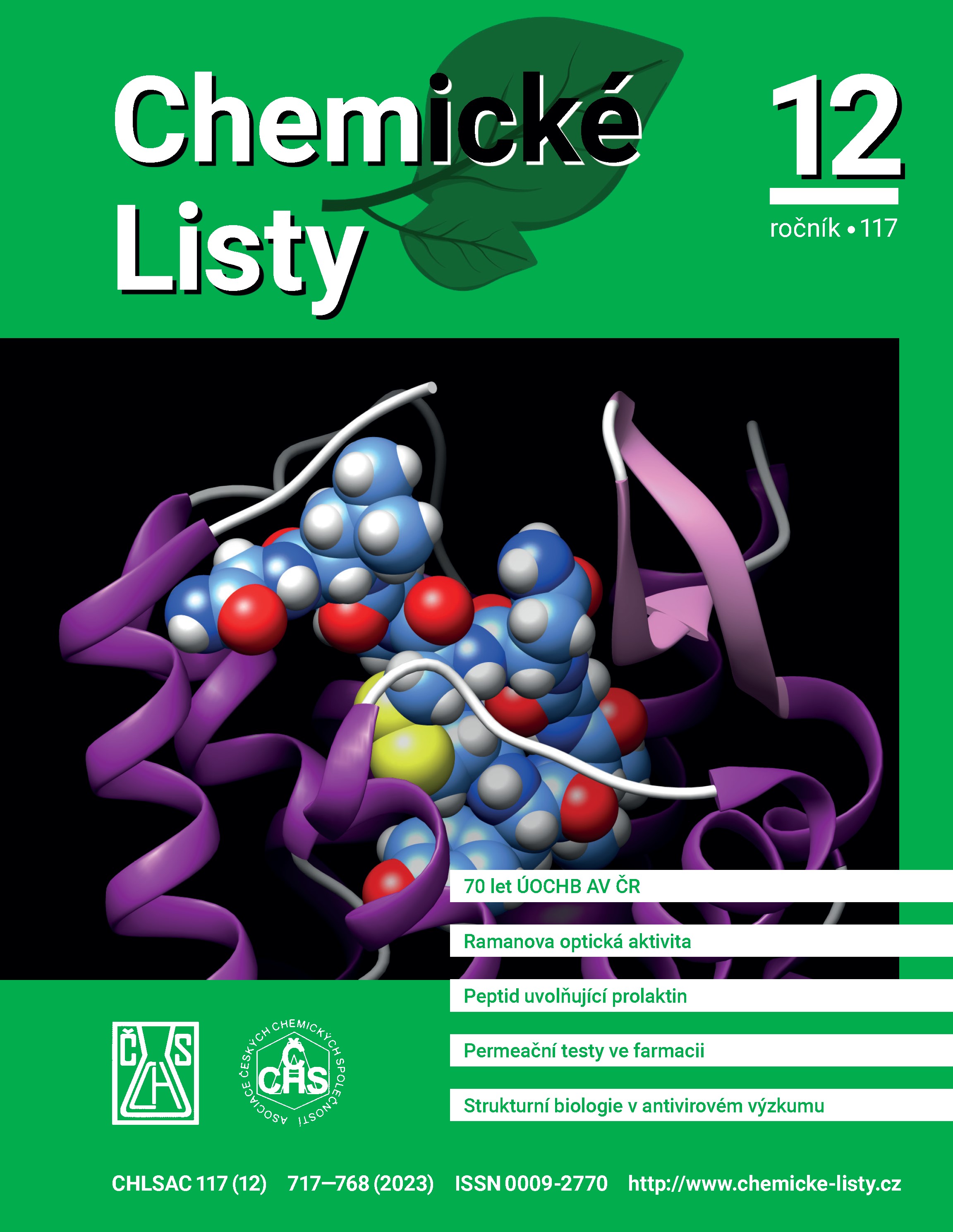Prolactin-Releasing Peptide, a Peptide with an Improper Name, but Proper Biological Activity for Obesity, Type-2 Diabetes, and Alzheimer's Disease Treatment
The article is dedicated to the 70ᵗʰ anniversary of the founding of the Institute of Organic Chemistry and Biochemistry of the CAS in Prague
DOI:
https://doi.org/10.54779/chl20230732Keywords:
prolactin-releasing peptide, PrRP, anorexigenic neuropeptide, lipidation, leptin, obesity, insulin resistance, prediabetes, Alzheimer's diseaseAbstract
Obesity is an escalating epidemic, but an effective non-invasive therapy is still scarce. For the obesity treatment, anorexigenic neuropeptides represent promising tools, but their delivery from the periphery to the brain is complicated because peptides have a low stability and limited ability to cross the blood-brain barrier.
Recently discovered anorexigenic neuropeptides, such as prolactin-releasing peptide, represent new trends in development of anti-obesity agents. They are released and acting directly in brain areas regulating food intake, but generally do not cross the blood-brain barrier if administered peripherally. We succeeded to design stable palmitoylated analogs of this neuropeptide with a prolonged acute anorexigenic effect after peripheral administration as shown in mice and rats. Repeated peripheral administration of the lipidized prolactin-releasing peptide analogs resulted in long-lasting anti-obesity and antidiabetic effects in rodent models of diet-induced obesity and insulin resistance. We proved that lipidation might be an effective way to transmit the desired effect to the central nervous system after peripheral administration, for a potential treatment of obesity and related complications such as type-2 diabetes.
Besides the advanced age, type-2 diabetes and obesity were shown to be risk factors for Alzheimer's disease; therefore, compounds with glucose-lowering and/or anorexigenic properties were proposed to be neuroprotective. In our group, we studied a possible crosstalk between obesity, type-2 diabetes and Alzheimer's-like pathology. We also investigated if our novel palmitoylated analogs of prolactin-releasing peptide could have beneficial effect on neurodegeneration in several mouse models of Alzheimer's-like pathology and their age-matched wild type controls. We demonstrated that these lipidized analogs are potentially neuroprotective substances improving spatial memory, neurogenesis, synaptogenesis and attenuating neuroinflammation and two hallmarks of Alzheimer's disease, i.e., tau hyper-phosphorylation and β-amyloid plaques in different mouse models of Alzheimer's-like neurodegeneration.





